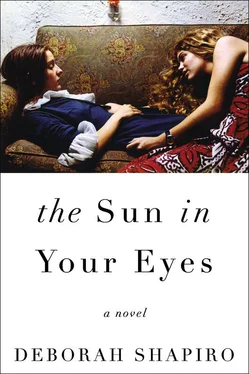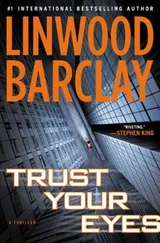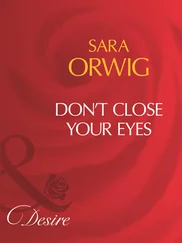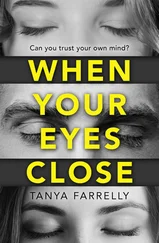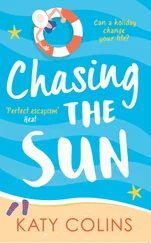Viv probably assumed Lee had had several abortions by now. Viv was someone you thought was unassuming, until you got to know her and you realized she assumed so many things. Had Lee told her at the time, Viv would have offered support and understanding. Still, something, something less than judgment, less than disapproval or disappointment — knowledge — would have been there ever after, would have become part of who Lee was to her friend. Viv would have seen it as one more way in which Lee had more experience, was somehow deep in a way Viv envied. Maybe this is how Lee wanted to think of it herself. For a while she had clung to her abortion as a private identifier, something that belonged to her. That job out of college, when she went to work at the reproductive rights center — she tried to convince herself that that was where she fit. But she didn’t, any more than she had fit in Bruce’s chapter of Mind Faith. Not any more than she would fit in the world of luxury brand ambassadorship.
She would come home sometimes and hear, in the hall by the front door, the sound of Viv and Andy watching a movie, talking or laughing. It surprised her that her instinct wasn’t to insert herself between them, to claim one of them as her own. Instead, she would head back down the stairs and find another place to be. It got easier later that year, when Andy started seeing the awful Lisette. (Who probably wasn’t even that awful, in retrospect.) With Lisette came a certain alleviation, and then Andy graduated, and then it was just Lee and Viv.
Though she kept things from Viv, she never felt she had to hide from her friend. To pretend she wasn’t, on a good day, moody, and on a bad day, sometimes panicky. What Viv was able to do was take Lee out of herself. She provided a focus. Viv’s surprising self-absorption came as a relief to Lee — because the absorption extended beyond Viv’s self. Lee once described their college relationship to Barbara, her therapist, in terms of paper towel commercials. Lee was the blue liquid that tore through weaker sheets and Viv was the strong, fibrous brand that could soak up big spills. Barbara laughed and asked if ads for bladder control garments weren’t perhaps even more on point, cementing Lee’s respect for her.
INSIDE THE LIBRARY,Lee and Viv sat down at a computer station to see what, if anything, they might find on Marion before they visited Patti Driggs during her office hours the next morning. Viv assumed the air of a focused secretary. Her keystrokes were like heels down a corridor. Lee loved how seriously Viv was taking this, using words like “cross-reference” as she called up various public records, searching for any scrap of information on the whereabouts of Marion Washington. A number of Marion Washingtons popped up but, upon further digging, each of them turned out to be wrong.
“Remember microfiche?” said Viv.
“No, not really.”
“You never used it?”
“Nope.”
“Did you ever even write a paper? I don’t think I ever remember you writing a paper.”
“I wrote papers. I even took exams.”
“What did you major in? I can’t remember that either.”
“American Civilization.”
“What is that, really?”
“An oxymoron. Just kidding. God bless the USA.”
“I’m sorry. Of course you wrote papers.”
“Well, I was never the most diligent student. I didn’t have the best models. Linda never went to college. She just took some business classes. Jesse dropped out of undergrad after a semester.”
Viv nodded, half-listening while she focused on the screen in front of them and opened up several digital archives of old newspapers and periodicals.
“You should have finished your Ph.D.”
At this, Viv stopped typing.
“Why do you say that?”
“You’re, like, in your element here.”
“The library is my element?”
“I just mean, you’ve always been kind of scholastic. You’re really into researching stuff.”
“Well, sure, and if that’s all a Ph.D. was, then maybe I would have gotten one. But it also involves a lot of bullshit political maneuvering that I didn’t want to engage in. And I think I’ve been much happier writing for THATH. But thank you for making me feel like Edward Casaubon.”
Lee didn’t know who that was. But she knew saying as much would only further the opposition here: Lee as breezy hedonist, Viv as studious pedant.
“I wasn’t aware it was still a sore spot, Viv. Sorry.”
“I wasn’t aware it was either. It’s being back at a place like this, I guess.”
“It makes me glad that we’re not here anymore, that we’re not twenty-one or whatever. That it’s a long time ago already. But I also can’t understand where it all went.”
“I know.”
Lee couldn’t quite bring herself to tell Viv that the other day, in the car, driving to see Flintwick, when she told Viv that the low point of the past few years was standing in the supermarket aisle, stirred to tears by an MOR evergreen — that that was the kind of sad and pathetic story you share precisely because it doesn’t reveal much beyond an awareness of your ordinary inability to resist the near-universal sentimentality of pop music. Who isn’t sad and pathetic in that way? She’d told Viv a little bit about her depression, about what she might have inherited from her father, the sketchy relationship the Parrishes historically had with mental health. But she had described this as a concern, not a comfort, when really it was both. She had noticed, living in Los Angeles and driving more, that she sometimes found herself in a fog at the wheel. She was operating at a deficit. Her inclination wasn’t to pull over and collect herself, but to just drive on through and let whatever might happen happen. She’d wondered if her father had ever experienced something similar, something that may have been taken, romantically, for recklessness. Maybe recklessness was just a passionless disregard for yourself and others. In New York, where she didn’t have a car, this fuzziness had sometimes led to poor decision-making with men. It resulted in a couple of qualified performance reviews at her nonprofit office job. But once she left for modeling in Paris, where she understood about sixty-five percent of what people said to her, her slightly erratic, distracted behavior was rewarded, if not encouraged. There are contexts where liabilities become assets. Her father had known this. Flintwick had called it pathological, his need to be a star, but what else was Jesse supposed to do with his excess of charisma?
French people loved Lee. She always showed up for work and she could be counted on, but she wasn’t all there, suggesting she was absorbed in something fascinating beyond what was in front of her. She gave in to her absentmindedness instead of trying to focus and make sense of what was happening around her. She was told this came through in her photographs.
Toward the end of a shoot once, a producer stepped forward and said, in English: “Okay, that’s all, fucks!” And Lee, brought back to attention, had said, “What?”
“Porky Pig! Looney Tunes?”
“Oh. Oh! That’s all, folks. I thought you said something else.”
“I did!”
Lee erupted as though something much funnier had just occurred, and the photographer took a few more pictures before pronouncing her “so wonderful.” From then on, “That’s all, fucks” became an expression she often said to herself.
There was a point, however, at which she couldn’t easily be pulled out of her not-there-ness. A point at which it could become less than charming. She never reached this point in Paris, but she’d been there before, in college, and she was there again.
Had it been the same way for her father? Was The Garden of Allah what that sounded like? Or did it sound like whatever was on the tapes that had gone missing? Finding the tapes might provide an answer but what did she really think that answer would do for her? What was really sad and pathetic, so much so that she couldn’t even bring herself to tell her therapist, was this search for something she knew she wasn’t going to find. Because it was all in the past. And everything everyone has ever said about that: You can’t go home again. Don’t look back. Getty over it. Searching for these tapes, as if they would reveal something to her about herself. What could they possibly reveal other than her own delusion? Once, against her better judgment, she had attended a Jesse Parrish tribute concert to benefit a cause she no longer remembered. She did remember encountering backstage two old rock crones in leather jackets. Garish hair. Pendants resting atop puckering cleavage. Heavy rings on their fingers. There was something who-gives-a-fuck fabulous about them, which they must have known. But you would never, ever want to be them, which they also must have known. Like the shrine she and Viv had visited in upstate New York. Anything can become a caricature of itself.
Читать дальше
